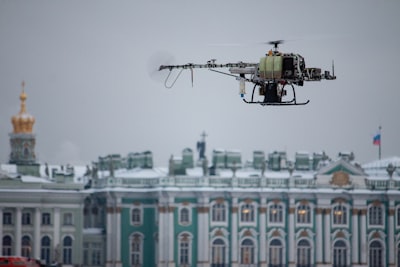With the prospect of intensified Russian aggression, European defense experts warn that the continent must be prepared to deploy 'millions of drones' for adequate security. This dramatic forecast isn’t simply headline hyperbole — it’s a clarion call underscoring how warfare in Europe is evolving, and how continental security priorities must adapt immediately.
Why Drones? Why Now? The war in Ukraine has catapulted drones to the forefront of modern combat. Cheap, scalable, and decentralized, they are reshaping everything from reconnaissance to direct strikes, and even electronic warfare. Ukrainian forces have used drones with remarkable agility not just to inflict damage, but to expose vulnerabilities in legacy Russian tactics.
Europe, watching closely, must now confront several stark realities: traditional stockpiles of tanks, artillery, and manned aircraft are inadequate against the scale and versatility of drone warfare. The ability to swarm, confuse air defenses, and provide real-time intelligence gives drones an asymmetric edge impossible to ignore.
The New Arms Race: Scale and Speed Where Europe once worried about numbers of soldiers or fighter jets, the conversation has shifted to industrial-scale drone manufacturing, AI-powered automation, and digital infrastructure. This also presents deep dilemmas:
| Pros of Mass Drone Deployment | Cons and Risks |
|---|---|
| Rapid scalability | Electronic and cyber vulnerabilities |
| Low-cost compared to manned | Potential for autonomous malfunction |
| Versatile offensive/defensive | Ethical and regulatory ambiguity |
| Reduces human risk | Civilian surveillance/privacy impacts |
Unseen Challenges and Surprising Players Europe’s drone challenge isn’t solely about hardware—it’s equally about supply chains for semiconductors, safe communications, and the ability to train (or retrain) personnel at all levels. Non-traditional defense suppliers, including tech start-ups and consumer drone makers, are suddenly strategic actors. Even Estonia and the Czech Republic, not known as defense powerhouses, are becoming key innovators in low-cost drone solutions.
Societal Impact and Broader Trends An accelerated drone build-up raises urgent privacy, legal, and ethical debates. What oversight is needed to avoid accidental escalation or civilian misuse? Meanwhile, mass drone deployment further blurs the line between warfighters and everyday tech workers. The shift also signals a return to collective, continent-wide defense planning reminiscent of the Cold War, but with new digital intensity and dependency on industrial innovation.
The bottom line: To remain secure, Europe faces not just a technological race, but a societal reckoning over how to innovate at wartime speed while remaining true to democratic and ethical standards.
This article was inspired by the headline: 'Europe 'will need millions of drones' to defend against possible Russian attacks and 'must be ready''.

Comments
No comments yet. Be the first to comment!